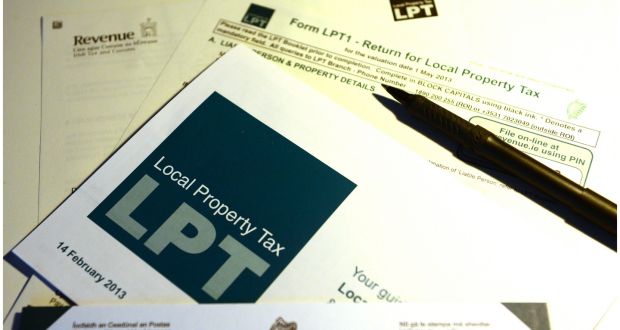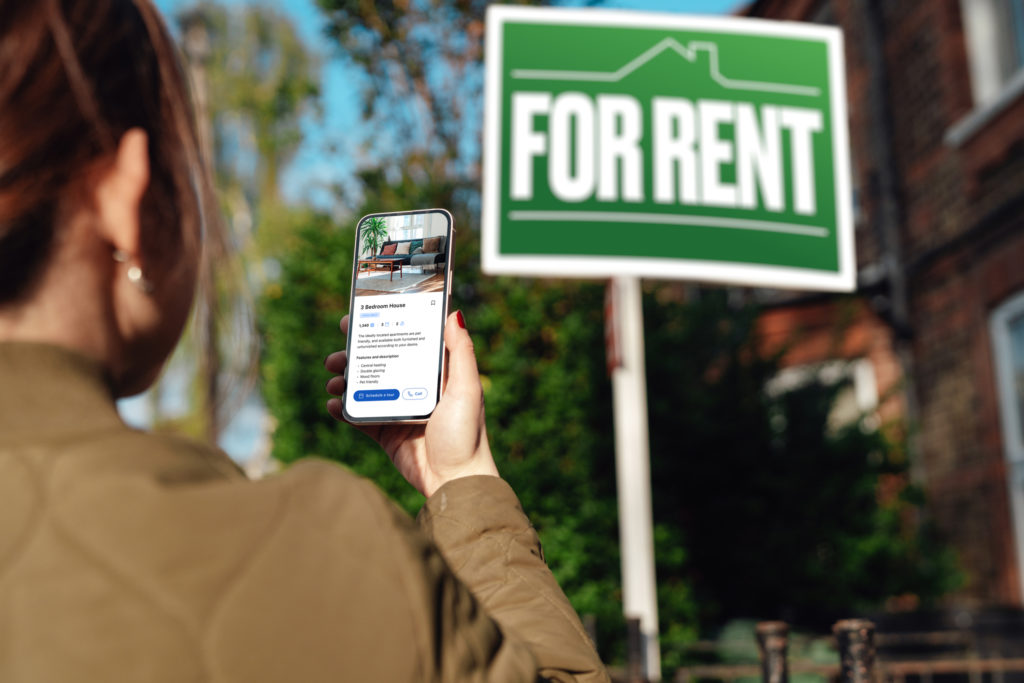This Saturday, November 1st, is the self-assessed revaluation deadline for your Local Property Tax, which will determine what you pay from 2026 to 2030.
You are asked to provide Revenue with a valuation of your property on that date with an LPT return due by November 7th.
So how do you value your property?
The most obvious way is to get a formal valuation from an estate agent in your area. However, there is likely to be a charge for this – often in the region of €100 – and given the quick turnaround between now and the submission date on November 7, you could struggle to get a booking.
For most people, especially those living in estates or in urban areas, a check with the Property Price Register will allow you to see what similar properties have sold for in your area.
If there have been no recent transactions, you will have to adjust the most recent sale price for a similar property to take account of rising prices in the meantime.
Another valuable tool is to browse MyHome for listings in your area. If a similar type house to yours is up for sale currently then that asking price will give you a ball park of what you would get for yours.
Most properties will sell for slightly over their asking price – on average 8% in September according to the recent MyHome Property Report in association with Bank of Ireland - but, if a property has been on the market for some time without selling then the chances are that it is priced too high.
Another way of assessing value is simply to adjust the valuation you put on the property back in November 2021 to take account of the increase in property prices in your area over the intervening four years by reference to the CSO data.
Revenue also provides an interactive valuation tool which indicates the average valuation band for properties in your area. However, if your home is bigger or smaller than the average in your location, you will need to adjust - Revenue advises that the interactive tool cannot provide a specific market value for any individual property.
According to Revenue: “When you value your property as at 1 November 2025, you should consider the specifics of your own property. This includes, for example, the size, age, condition and number of bedrooms in your property. Your property may have certain unique features which are relevant to its market value.
“You are not required to submit documentation to support your valuation to Revenue. However, you should keep a copy of any information sources and supporting documentation that you use to determine the value of your property. Revenue may request this from you in the event of a review of your self-assessment of your property’s value.”
Once you have determined your valuation, that will determine how much Local Property Tax you pay based on which of the 19 bands you fall into.
If it is in Bands 12 and above (valued at anywhere from €1.26 million to €2.1 million), the Local Property Tax is assessed at 0.25 per cent on any value above the €1.26 million threshold, although that is provided for in the figures for your bill within each band. If it is worth more than €2.1 million, you are required to provide a specific valuation, rather than one within a band. Any value above €2.1 million is taxed at 0.3 per cent.
| Valuation bands and basic rates for the valuation period from 2026 to 2030 | ||
| Valuation band number | Valuation band € | LPT charge basic rate € |
| 1 | 0 – 240,000 | 95 |
| 2 | 240,001 – 315,000 | 235 |
| 3 | 315,001– 420,000 | 333 |
| 4 | 420,001 – 525,000 | 428 |
| 5 | 525,001 – 630,000 | 523 |
| 6 | 630,001 – 735,000 | 618 |
| 7 | 735,001 – 840,000 | 713 |
| 8 | 840,001 – 945,000 | 808 |
| 9 | 945,001 – 1,050,000 | 903 |
| 10 | 1,050,001 – 1,155,000 | 998 |
| 11 | 1,155,001 – 1,260,000 | 1,094 |
| 12 | 1,260,001 – 1,365,000 | 1,272 |
| 13 | 1,365,001 – 1,470,000 | 1,535 |
| 14 | 1,470,001 – 1,575,000 | 1,797 |
| 15 | 1,575,001 – 1,680,000 | 2,060 |
| 16 | 1,680,001 – 1,785,000 | 2,322 |
| 17 | 1,785,001 – 1,890,000 | 2,585 |
| 18 | 1,890,001 – 1,995,000 | 2,847 |
| 19 | 1,995,001 – 2,100,000 | 3,110 |
There is also the possibility of a Local Adjustment Factor. Each Local Authority can increase or decrease the LPT rate by up to 15 % from the basic rate (this will change to up to 25% by 2027).
You can refer to the Local Adjustment Factor for each Local Authority for 2026 in the table below. Alternatively, you can use Revenue’s online LPT calculator to calculate your Local Property Tax charge for 2026.
| Local Authority percentage increase or decrease on the base rate of LPT | |
| Local Authority | 2026 percentage increase or decrease on base rate |
| Carlow County Council | +15% |
| Cavan County Council | +15% |
| Clare County Council | +15% |
| Cork City Council | +12% |
| Cork County Council | +15% |
| Donegal County Council | +15% |
| Dublin City Council | 0% |
| Dún Laoghaire Rathdown County Council | -15% |
| Fingal County Council | -5% |
| Galway City Council | +15% |
| Galway County Council | +15% |
| Kerry County Council | +10% |
| Kildare County Council | +10% |
| Kilkenny County Council | +15% |
| Laois County Council | +15% |
| Leitrim County Council | +15% |
| Limerick City & County Council | +15% |
| Longford County Council | +15% |
| Louth County Council | 0% |
| Mayo County Council | +10% |
| Meath County Council | 0% |
| Monaghan County Council | +15% |
| Offaly County Council | +15% |
| Roscommon County Council | +15% |
| Sligo County Council | +15% |
| South Dublin County Council | -7.5% |
| Tipperary County Council | +15% |
| Waterford City & County Council | +15% |
| Westmeath County Council | +15% |
| Wexford County Council | +15% |
| Wicklow County Council | +6% |
Having sorted your valuation, you need to file an LPT return by November 7th. If you normally file tax returns online – either through Revenue’s myAccount portal or via ROS – you can submit your return in the same way. Otherwise, you can go through Revenue’s dedicated LPT online channel.
To complete the return, apart from your valuation, you will need the ID of your property and your LPT PIN. Both of these details will be on the letter Revenue has sent out to about two million households in the last few weeks.
You will also need your PPS number and details of how you intend to pay your annual LPT charge.
Revenue offers a wide range of payment methods. If you want to pay the charge as a lump sum, you can do so via your credit or debit card or through an annual debit instruction, under which the money will automatically be taken from your account at the same time every year.
Revenue also offers a series of instalment payment options and, unlike your household or car insurance, you are not charged a premium for stretching the payments out across the year.
You can set up a monthly direct debt or permit Revenue to deduct the charge at source from your salary or pension. If none of those work for you, you can also pay in cash through An Post or Payzone.
You will need to indicate on your return which payment option you are going for unless it is the same as you have been using thus far.
The key thing is not to ignore the re-evaluation period.
Follow MyHome on WhatsApp for all the latest property news and advice.






